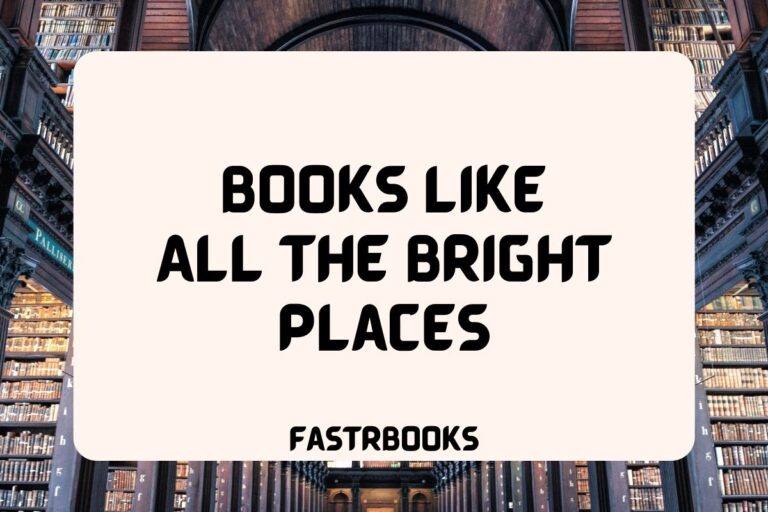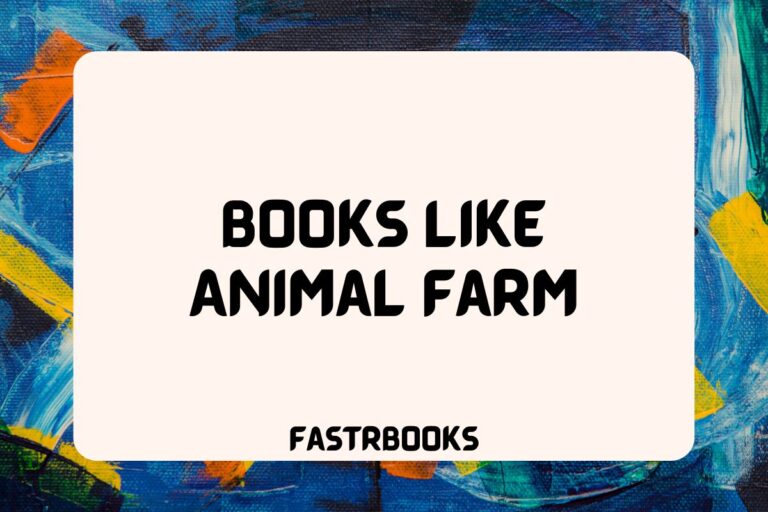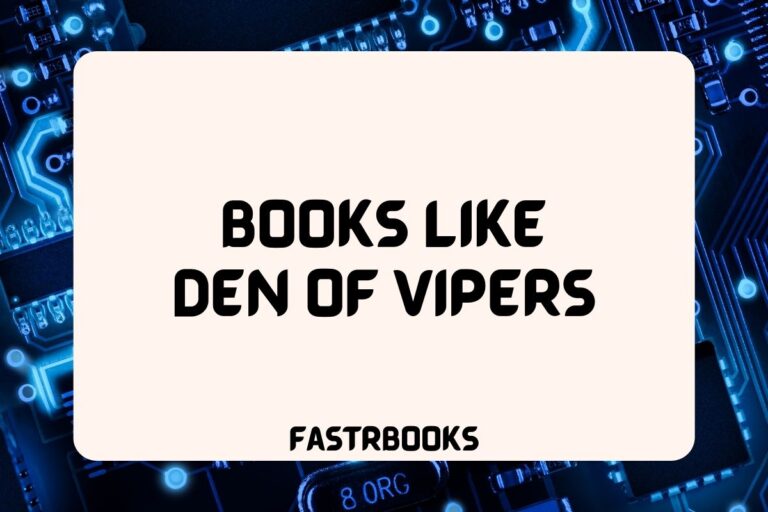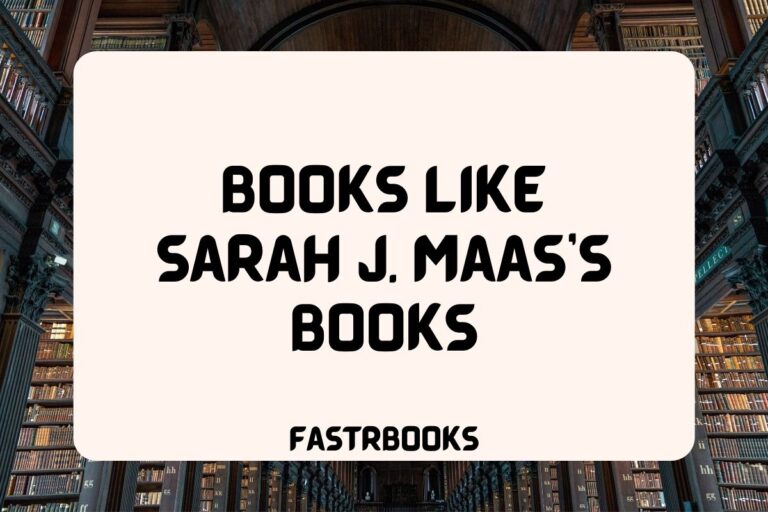21 Books Like Tuesdays With Morrie

“Tuesdays with Morrie” by Mitch Albom is a memoir that explores the profound lessons on life and love imparted by a former college professor, Morrie Schwartz, to his student, Mitch Albom, as Morrie faces his terminal illness.
If you enjoyed the themes and reflective narrative style of “Tuesdays with Morrie,” you might also appreciate these books that offer similar explorations of life’s complexities, relationships, and the pursuit of meaning.
Each of these books captures the essence of human experiences and offers valuable insights into the human condition, much like Albom’s celebrated work. Whether you’re seeking inspiration, wisdom, or a deeper understanding of life, these books are sure to resonate with you.
Books Like Tuesdays With Morrie
“The Last Lecture” by Randy Pausch
“The Last Lecture” is a profound reflection on achieving one’s childhood dreams and the lessons learned throughout life, presented in a lecture by Randy Pausch, a computer science professor at Carnegie Mellon University, who was diagnosed with terminal pancreatic cancer.
This book captures Pausch’s thoughts on the importance of overcoming obstacles, seizing every moment, and living life to the fullest, despite the knowledge of his impending death.
It serves as a legacy and a gift to his family and to readers, offering wisdom and insights on living a meaningful life.
“The Five People You Meet in Heaven” by Mitch Albom
In “The Five People You Meet in Heaven,” Mitch Albom explores the interconnectedness of life through the story of Eddie, a war veteran turned amusement park mechanic, who dies and discovers that heaven is a place where you meet five people who had a significant impact on your life, some of whom you might not have even realized.
These encounters help Eddie understand the value and purpose of his life, as each person explains their connections and the lessons they impart, offering a fresh perspective on the impact of every life.
“The Alchemist” by Paulo Coelho
“The Alchemist” is a philosophical novel that follows the journey of a young Andalusian shepherd named Santiago who dreams of finding a worldly treasure located somewhere in the Egyptian pyramids.
Guided by a series of spiritual messengers and signs, Santiago’s quest becomes a rich exploration of personal destiny, the wisdom of listening to our hearts, recognizing opportunity, and learning to read the omens strewn along life’s path.
The book is a metaphor for anyone pursuing their dreams and searching for their own personal legend.
“Man’s Search for Meaning” by Viktor E. Frankl
Viktor E. Frankl’s “Man’s Search for Meaning” is a powerful memoir and psychological exploration written by a neurologist and psychiatrist who survived the Holocaust.
Frankl recounts his experiences in Auschwitz and other concentration camps, focusing on how his psychological theories were put to the test under the most extreme conditions.
The book introduces his theory of logotherapy, which asserts that finding meaning in life is the most significant motivational force for humans, offering profound insights into the human capacity for resilience and survival.
“Life of Pi” by Yann Martel
“Life of Pi” is a fantasy adventure novel that tells the story of Pi Patel, a young boy from Pondicherry, India, who survives a shipwreck and is left stranded on a lifeboat in the Pacific Ocean with a Bengal tiger named Richard Parker.
The novel explores themes of spirituality, survival, and the essence of storytelling, as Pi must use his wit and faith to coexist with the tiger and confront the vastness of the ocean and his own personal beliefs.
“The Book Thief” by Markus Zusak
Set in Nazi Germany, “The Book Thief” narrates the story of Liesel Meminger, a young girl who finds solace in stealing books and sharing them with her neighbors and the Jewish man hiding in her basement.
Narrated by Death, the novel provides a unique perspective on the beauty and brutality of humanity during one of history’s darkest times, highlighting the power of words to bring comfort, to transform lives, and to resist oppression.
“A Man Called Ove” by Fredrik Backman
“A Man Called Ove” is a heartwarming story of a grumpy yet loveable man named Ove, who has given up on life following his wife’s death. His plans to end his misery are constantly thwarted by his neighbors, who require his assistance, leading to unlikely friendships and a community coming together.
Through humor and heartbreak, the novel explores themes of loss, the importance of community, and the unexpected joy that can come from living a life you didn’t know you were missing.
“Wild: From Lost to Found on the Pacific Crest Trail” by Cheryl Strayed
In “Wild,” Cheryl Strayed recounts her journey of self-discovery and healing as she hikes over a thousand miles of the Pacific Crest Trail alone, following the dissolution of her marriage and the death of her mother.
With no prior backpacking experience, Strayed’s memoir is a raw and honest account of her physical and emotional challenges and triumphs along the trail, offering insights into the power of nature to restore and the strength required to forge ahead in the face of adversity.
“When Breath Becomes Air” by Paul Kalanithi
“When Breath Becomes Air” is a moving memoir by Paul Kalanithi, a neurosurgeon who faces a terminal lung cancer diagnosis just as he is completing his training.
The book delves into Kalanithi’s journey to understand the relationship between life and death, his role as a doctor, and what makes life worth living in the face of mortality.
It’s a profoundly reflective narrative about confronting one’s mortality and finding meaning amidst the inevitable.
“The Art of Racing in the Rain” by Garth Stein
Narrated by a wise and philosophical dog named Enzo, “The Art of Racing in the Rain” explores the life of his owner, race car driver Denny Swift, through the highs and lows, including his career challenges, personal loss, and custody battles.
Enzo, who believes in the Mongolian legend that a dog who is prepared will be reincarnated in his next life as a human, provides unique insights into the human condition, the complexities of life, and the unbreakable bond between a man and his dog.
“The Road Less Traveled” by M. Scott Peck
“The Road Less Traveled” is a pioneering work in psychology by M. Scott Peck that examines the nature of personal growth and how to achieve it.
The book begins with the profound truth that “Life is difficult,” setting the stage for a deep exploration into the discipline, love, religion, and grace required to navigate life’s challenges.
Peck integrates his clinical experiences with insights from his spiritual journey, offering guidance on how to live a more fulfilled and spiritually evolved life.
“Ikigai: The Japanese Secret to a Long and Happy Life” by Héctor García and Francesc Miralles
“Ikigai” is a Japanese concept that translates to “a reason for being.” In this book, authors Héctor García and Francesc Miralles visit the Japanese village of Ogimi, known for its high number of centenarians, to explore the secrets to a long and happy life.
The book combines philosophy, interviews, and practical advice to reveal how finding one’s ikigai—the intersection of what you love, what you are good at, what the world needs, and what you can be paid for—can contribute to longevity, happiness, and health.
“Big Magic: Creative Living Beyond Fear” by Elizabeth Gilbert
In “Big Magic,” Elizabeth Gilbert shares her wisdom and unique perspective on creativity. The book encourages readers to embrace their curiosity, tackle what they love with joy and openness, and face down what they most fear.
Drawing from her own experiences, Gilbert discusses the attitudes, approaches, and habits we need in order to live our most creative lives. She argues that the creative process is both magical and mundane, and that a life of creativity is a life filled with enchantment.
“Becoming” by Michelle Obama
“Becoming” is a deeply personal memoir by Michelle Obama, former First Lady of the United States.
The book offers an intimate look at her life, from her childhood on the South Side of Chicago to her years as an executive balancing the demands of motherhood and work, to her time spent at the world’s most famous address.
With unerring honesty and lively wit, she describes her triumphs and disappointments, both public and private, telling her full story as she has lived it—in her own words and on her own terms.
“Educated” by Tara Westover
Tara Westover’s “Educated” is a memoir that recounts her journey from growing up in a strict and abusive household in rural Idaho with no formal education to earning a PhD from Cambridge University.
The book highlights the power of education as Westover teaches herself enough mathematics and grammar to pass college entrance exams, leading to her broader exploration of the world outside her family’s mountain home.
It’s a testament to the desire for knowledge and the extraordinary resilience of the human spirit.
“The Monk Who Sold His Ferrari” by Robin Sharma
This fable by Robin Sharma tells the story of Julian Mantle, a high-powered lawyer plagued by a spiritual crisis, who sells all his belongings to travel to India and learn about living a more meaningful life.
Through conversations with Himalayan gurus, Mantle discovers practical and philosophical lessons on how to live with passion, purpose, and peace—a stark contrast to his previous life of material wealth and professional success.
The book serves as a blueprint for living a fulfilled life, blending Eastern spirituality and Western success principles.
“The Four Agreements: A Practical Guide to Personal Freedom” by Don Miguel Ruiz
Based on ancient Toltec wisdom, “The Four Agreements” presents a simple but powerful code of personal conduct that can rapidly transform our lives to a new experience of freedom, true happiness, and love.
The agreements are: Be impeccable with your word; Don’t take anything personally; Don’t make assumptions; Always do your best. Ruiz’s insights are rooted in the idea that by adopting these agreements, one can create a life filled with grace, peace, and unconditional love.
“Brida” by Paulo Coelho
“Brida” is a novel by Paulo Coelho that delves into the life of a young Irish girl on a quest for knowledge and her journey into the world of magic as she seeks her destiny.
Along the way, Brida meets a wise man who teaches her about overcoming her fears and a woman who teaches her how to dance to the hidden music of the world.
The book explores themes of destiny, the interconnectedness of all things, and the various paths people take to understand themselves.
“Tuesday’s Promise: One Veteran, One Dog, and Their Bold Quest to Change Lives” by Luis Carlos Montalván and Ellis Henican
This book is a continuation of the story of Luis Carlos Montalván, a former U.S. Army captain who suffered from PTSD and the physical wounds of war, and his service dog, Tuesday.
“Tuesday’s Promise” not only recounts their journey together but also delves into Montalván’s advocacy work for veterans and the healing power of service dogs.
Through their story, the book highlights the challenges veterans face upon returning home and the profound impact of companionship and understanding in overcoming trauma.
“The Power of Now: A Guide to Spiritual Enlightenment” by Eckhart Tolle
Eckhart Tolle’s “The Power of Now” is a spiritual guidebook that aims to bring its readers towards enlightenment by helping them fully embrace the present moment—the now.
Tolle introduces the concept of “mindfulness” as a tool to prevent being overwhelmed by thoughts of the past or worries about the future, thereby finding peace and clarity.
The book emphasizes the importance of disconnecting from the ego-driven mind to achieve a state of consciousness and presence that transforms personal and professional life.
“Siddhartha” by Hermann Hesse
“Siddhartha” is a novel by Hermann Hesse that narrates the journey of a young man named Siddhartha during the time of the Gautama Buddha.
Searching for the true meaning of life and enlightenment, Siddhartha embarks on a journey of self-discovery that leads him through various stages of life, from asceticism and indulgence to finally finding peace and enlightenment by the river.
The novel is a profound exploration of the quest for wisdom, understanding the essence of existence, and the path to spiritual enlightenment.






